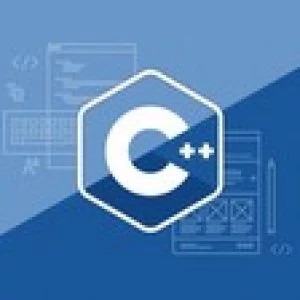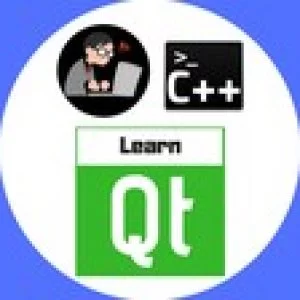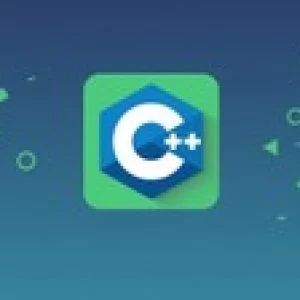
C++ is one of the most widely used programming languages. Fast, efficient, and flexible, it is used to solve many problems. In particular, it is the Standard Template Library (STL) that gives C++ its power. In this course, we show you how.
Using real–world examples, we focus on how STL handles and manipulates data. We examine containers and iterators, and how data can be transformed into meaningful information using algorithms. There is coverage of I/O streams, strings and numerical methods, and how performance can be optimized through careful consideration of memory allocation and manipulation. We also demonstrate how multitasking and shared data is handled through concurrency and parallelism classes and utilities.
By the end of the course, you will understand the newer aspects of C++ STL and will be able to overcome tasks that are time–consuming or would break your stride while developing.
About the Author
James Slocum has been a professional developer for over 10 years. He graduated from NJIT with a Bachelor’s degree in Computer Engineering in 2008, and again with a Master’s in Computer Science in 2011. He currently works for Audible as a software engineer and tech lead for the library group. The languages he uses the most are Java, JavaScript, C++, and Dart. In his free time, he enjoys learning about new languages and technology.
Instructor Details
Courses : 212
Specification: C++ Standard Template Library in Practice
|
7 reviews for C++ Standard Template Library in Practice
Add a review Cancel reply
This site uses Akismet to reduce spam. Learn how your comment data is processed.

| Price | $17.99 |
|---|---|
| Provider | |
| Duration | 10.5 hours |
| Year | 2019 |
| Level | Intermediate |
| Language | English |
| Certificate | Yes |
| Quizzes | Yes |

$99.99 $17.99






Kevin Walker –
This helps me personally , identify some of my own missing procedure and reasoning when identifying a template in C++.
Artem Kovera –
I think iterators, algorithms, I/O, and memory facilities are explained well, but I would prefer more material on containers and multithreading. Anyway, the content is good.
Maria Bikarska –
All of that information is presented in a pretty interesting way, thanks a lot about the course content and the dedicated time! kind regards, First semester student in Computer Science
Alexander Lazarev –
Really good course for instant dive in C++ from any other language.
Salim Pamukcu –
I am glad to have found this course about C++ after finishing my basic class which was also great. It is hard to find a good intermediate or a little advanced C++ class good quality of information..current topics and the instructor is awesome so far.
Moreshwar Salpekar –
The course covered a lot topics and helped me get up to date with C++ 17. I was missing a lot of information on C++ STL. This course helped bridge the gap. On the positive there were lot of opportunities to program including projects in almost each section. It was fun implementing the project All my doubts were cleared. I got the answers all the questions I asked (except the last one which I am sure I will get it). On the not so brighter side 1. The answers are two stage: 1st stage which acknowledges the question and the second stage which actually answers the doubt. This takes a little time but most of time worth the wait 2. I found some mistakes in code like incorrect formula using % operator (and got answer that % operator was not required at all because other parts of code were already checking the bounds). Then there was issue with stable sort. The question has not been corrected even though the answer is corrected in one of questions from student (the answer to student says stable sort) is correct answer but answer to quiz question has not been updated yet 3. I found some definitions taken in as it is from en.cppreference.com in containers and algorithm sections. These slides were mostly read from. However, text being easy to understand, made it easy to grasp what was being said. Some explanation could have been added to make it better 4. The compiler features should be updated in course for future corrections. For example gcc has been updated after the course but its features not correctly updated in lectures Hope all required corrections are made and course is updated.
Tyce Brown –
Good course that covered quite a few topics. I only gave it four stars because sometimes he didn’t explain why he was doing something a different way, and which way was more efficient. He also needs some challenges, but all in all, a good course.